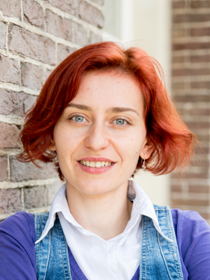NWO grant for project of Dr. Viktoriya Degeler
Assistant professor Viktoriya Degeler from Distributed Systems, received a grant for the NWO Smart Industry project "DiTEC: Digital Twin for Evolutionary Changes in water networks".
DiTEC proposes an evolutionary approach to real-time monitoring of water networks that detects inconsistency between measured sensor data and the expected situation, and performs real-time model update without needing additional calibration. Deep learning will be applied to create a data-driven simulation of the system. In case of leaks, valve degradation or sensor faults, the model is adapted to the degraded network until the maintenance takes place, which can take a long time. We will analyse the effect on data readings of different malfunctions, and construct a mitigating mechanism that allows to continue using the data, albeit in a limited capacity.
Viktoriya Degeler is the main applicant and coordinator.
The €800,000 project is a result of collaboration of the Bernoulli Institute (BI) of the University of Groningen (Viktoriya Degeler, Alexander Lazovik), Hanzehogeschool Groningen / Hanze University of Applied Sciences Groningen (Peter Kamphuis), Vitens (Hester Van Het Loo, Mario Maessen), and Researchable | Innovation through data (Frank Blaauw).
The project will last four years and covers two PhD positions for the group.
Read NWO's announcement:
https://lnkd.in/dNHwE9JB

| Last modified: | 24 November 2021 10.57 a.m. |
More news
-
25 April 2025
Leading microbiologist Arnold Driessen honoured
On 25 April 2025, Arnold Driessen (Horst, the Netherlands, 1958) received a Royal Decoration. Driessen is Professor of Molecular Microbiology and chair of the Molecular Microbiology research department of the Faculty of Science and Engineering at the...
-
24 April 2025
Highlighted papers April 2025
The antimalarial drug mefloquine could help treat genetic diseases such as cystic fibrosis, Duchenne muscular dystrophy, as well as some cancers.
-
22 April 2025
Microplastics and their effects on the human body
Professor of Respiratory Immunology Barbro Melgert has discovered how microplastics affect the lungs and can explain how to reduce our exposure.
